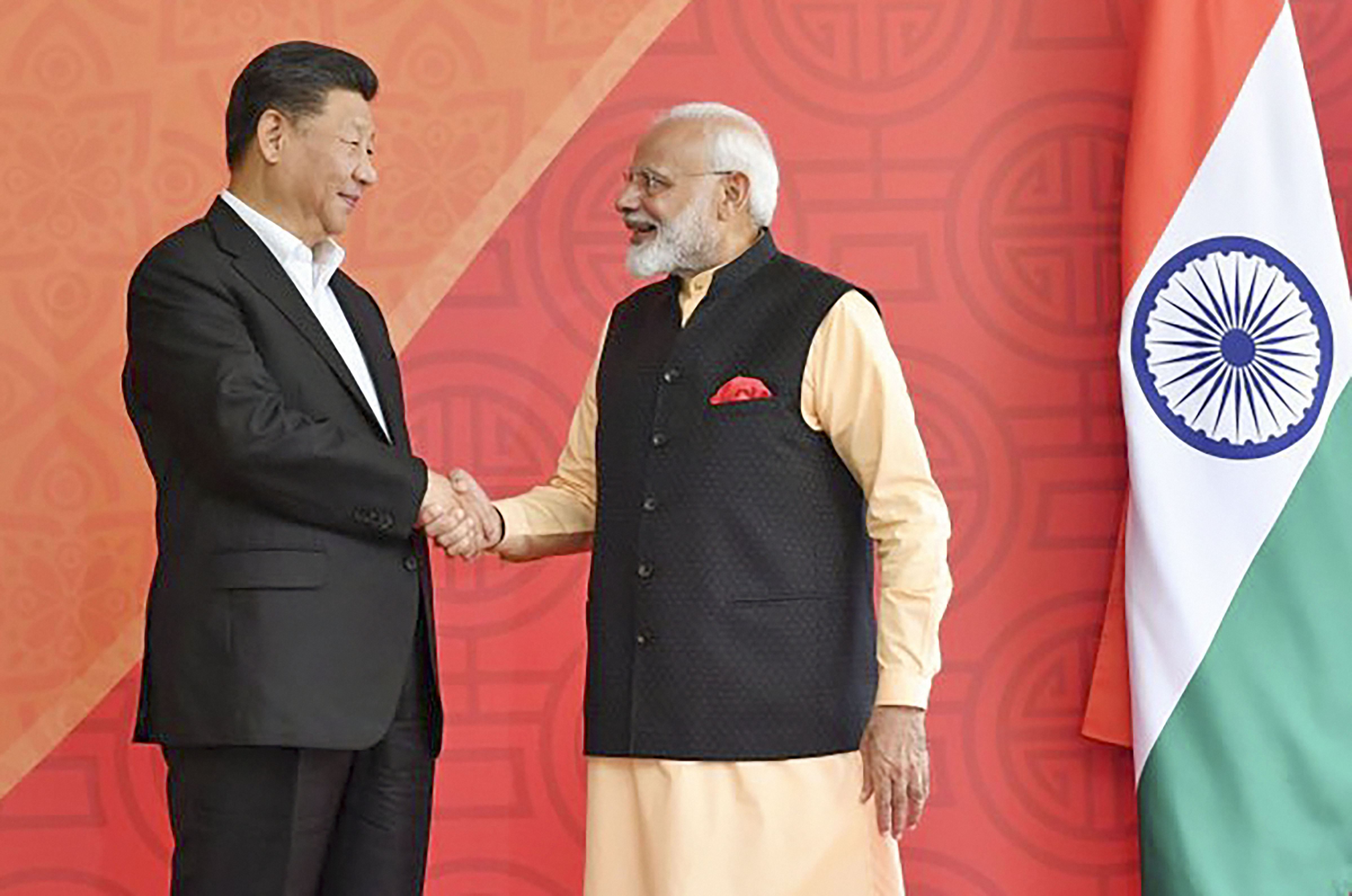
Modi, Xi ‘connect’ India, China beyond routine trade ties
The two-day informal summit at Chennai of Indian Prime Minister Narendra Modi and Chinese President Xi Jinping, besides passing off without a hitch, expectedly focussed on the trade and investment scenario between the two countries.

The two-day informal summit at Chennai of Indian Prime Minister Narendra Modi and Chinese President Xi Jinping, besides passing off without a hitch, expectedly focussed on the trade and investment scenario between the two countries leading to the setting up of a “mechanism” to deal with issues arising on this front.
Having benefited from the informal interaction at the 2018 meet in Wuhan in sorting out differences on various issues the “Chennai connect”, as Modi put it, will focus on a better understanding between the two countries who will act in tandem on international issues.
The mechanism relating to trade issues would entail Finance Minister Nirmala Sitharaman and Chinese Vice-Premier Liu He to represent the concerns of either in the event of a contentious issue. But how differences would be treated or the redressal format set up as part of “the mechanism” is not yet known. With burgeoning trade between the two it was inevitable that such a mechanism had to be set up, though it remains to be seen how effective it will be.
Also read | New era in Sino-India cooperation to begin with Chennai connect: Modi
Foreign Secretary Vijay Gokhale almost gave nothing away at his media briefing besides indicating that India had concerns over the Regional Comprehensive Economic Partnership (RCEP).
The RCEP, a Chinese formulation, floated first in 2012 is a free trade partnership that includes the ASEAN countries besides others including India, Australia, Japan and New Zealand and South Korea. India fears that the RCEP can open up the local market to a flood of Chinese goods, among others. This may be to the detriment of local producers. The RCEP, incidentally, is scheduled to be launched sometime this year.
During the meeting, Gokhale said that a rules-based global trading system found favour with both the leaders. This could be a starting point for the RCEP, as a rules-based system will mean a level-playing field for all the countries in the formation and each country will necessarily have to follow the rules that have been put in place by consensus.
Also read | On Day-2 Modi, Xi spend quality time, discuss trade deficit at seaside resort
Politically, India would have to be satisfied with China’s broad concurrence on the issue of terrorism. Gokhale said both assured they would work with each other on this score. But there appears to have been no recourse to specifics.
While India has been asking for international recognition on the alleged backing to terrorism across the border in Pakistan, China has been reluctant to go the extra mile to satisfy India’s demand. The reason, obviously, is due to Beijing’s proximity to Islamabad and that does not look like changing in the near future, at least.
Since Modi and Xi spent at least two hours on their own, they would have discussed various issues of differing sensitivity. What however was said about the meeting by Gokhale was possibly the briefest peek into the issues the two leaders looked at.
The Indian foreign secretary said Kashmir was not discussed. But this issue has perpetually been crucial for India and what the Chinese say on it has always been taken very seriously. As for the Chinese, they have mostly stood by Pakistan on Kashmir and occasionally attempted to douse India’s irritation if they have said anything out of line.
Also read | Modi starts Day-2 with plogging at Mamallapuram beach
The other crucial issue revolves around India’s reported decision not to allow Huawei’s 5G trials in India. That India rescind the decision is crucial to China as the technology giant, which is reportedly backed by Beijing, is just about to take off on its 5G offerings around the world. The US particularly, is using all its clout, to prevent countries including India and the United Kingdom not to entertain Huawei.
The Chennai meet however signals a clear desire of the Chinese to expand its trade footprint in India, even though it is already New Delhi’s second largest trading partner. That the Chinese president, according to Gokhale, wanted to play a bigger role to meet India’s defence needs is significant.
For a country that is still deeply viewed with suspicion since the 1962 war with India, to propose defence cooperation is truly a leap of faith. But, the manner in which, despite political differences, the two nations are carrying on with their economic cooperation makes it clear that the day will not be long off when a larger and more visible Chinese role in India’s defence sector may well turn into a reality.
Also read | Modi, Xi discuss trade, terrorism over dinner; aim to fix ties

